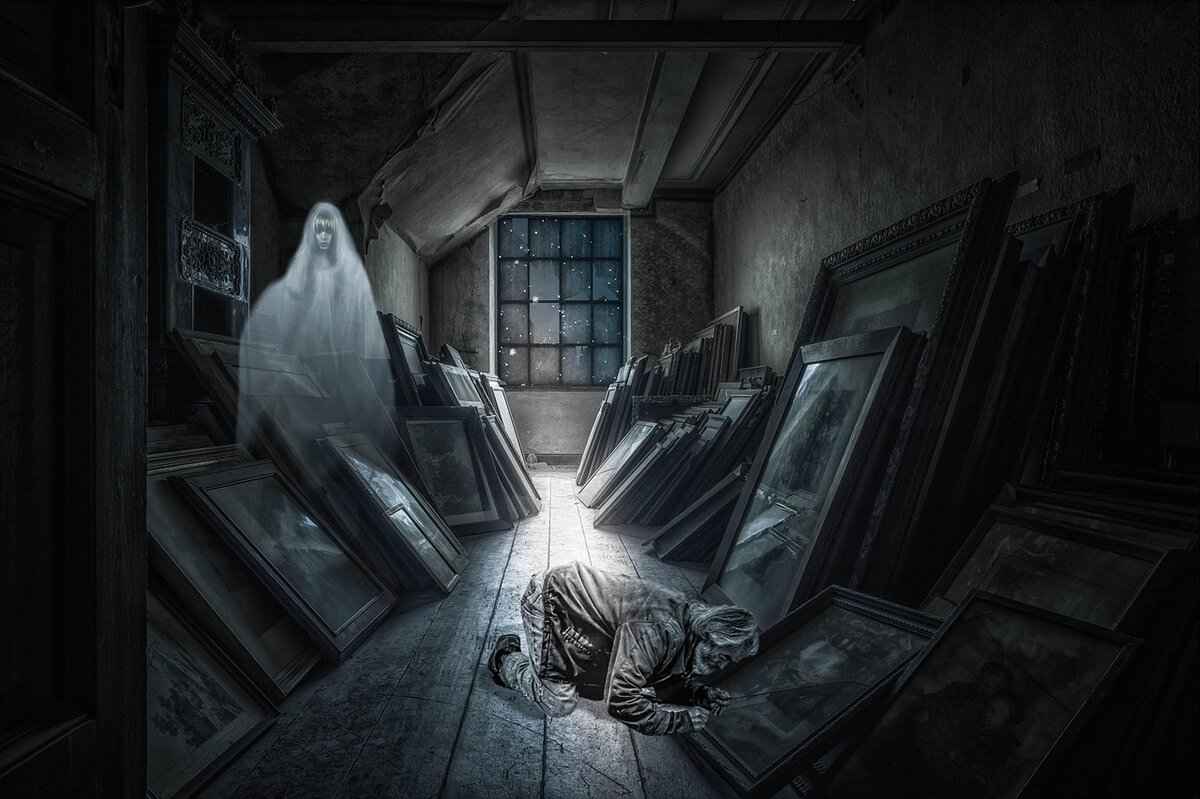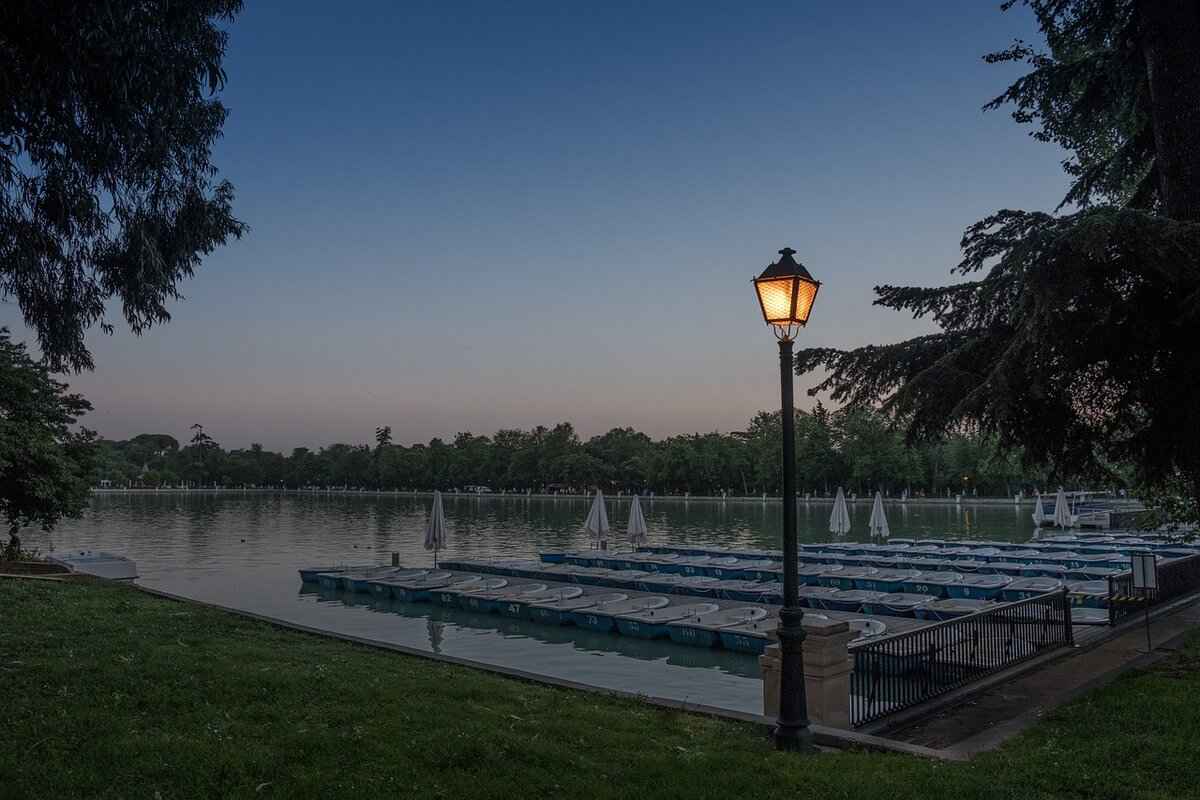This comprehensive guide provides effective strategies and insights on how to safely and humanely remove raccoons from your attic, ensuring a peaceful coexistence with wildlife. Raccoons, known for their dexterity and intelligence, can become unwelcome guests in your home. Understanding their behavior and implementing the right strategies can help you manage this situation effectively.
Understanding Raccoon Behavior
Raccoons are primarily nocturnal creatures, meaning they are most active during the night. Their adaptability allows them to thrive in urban environments, often leading them to seek shelter in attics. Recognizing their habits is essential for effective removal and prevention strategies.
Identifying Signs of Raccoon Infestation
Early detection of a raccoon infestation can save you from extensive damage. Look for the following signs:
- Nocturnal Noises: Scratching, scurrying, and thumping sounds at night are common indicators of raccoons in your attic.
- Droppings: Raccoon feces are dark, cylindrical, and often contain remnants of their diet, like seeds or fur.
- Physical Damage: Inspect your insulation and vents for signs of tearing or displacement, which can indicate raccoon activity.
Assessing Entry Points
Raccoons can squeeze through surprisingly small openings. Conduct a thorough inspection of your home, focusing on:
- Gaps around vents and chimneys
- Holes in the roof or siding
- Unsealed windows or doors
Safe and Humane Removal Techniques
When it comes to removal, humane methods are crucial. Here are some effective techniques:
- Using Live Traps: Live traps are an ethical way to capture raccoons. Ensure the traps are placed near entry points and baited with attractive food such as fruits or pet food.
- Professional Wildlife Removal Services: If trapping fails, consider hiring experts. They have the experience and tools to safely remove raccoons and prevent future infestations.
Preventing Future Raccoon Infestations
After successfully removing raccoons, focus on prevention to avoid future issues:
- Securing Garbage and Food Sources: Raccoons are opportunistic feeders. Secure your trash cans with tight lids and remove pet food from outside.
- Sealing Entry Points: Use durable materials like metal mesh or concrete to close any gaps or holes identified during your inspection.
Legal Considerations and Wildlife Regulations
Understanding local wildlife regulations is essential before taking action. Many regions have specific laws regarding the humane treatment of raccoons. Consider the following:
- Researching Local Wildlife Laws: Familiarize yourself with local regulations to ensure compliance when dealing with raccoons.
- Reporting Infestations to Authorities: In some cases, it may be necessary to inform local wildlife authorities about infestations, especially if you require assistance with humane removal methods.
By following these guidelines, you can effectively manage raccoon infestations while ensuring their humane treatment. Understanding their behavior and implementing preventive measures will contribute to a harmonious coexistence with these intelligent creatures.

Understanding Raccoon Behavior
Raccoons are fascinating and complex creatures that have adapted remarkably well to urban environments. Their nocturnal nature means that they are most active during the night, making them elusive and often unnoticed until they become a problem. Understanding their behavior is essential for anyone dealing with a raccoon infestation, as it can inform effective removal strategies and help prevent future encounters.
One of the most notable traits of raccoons is their intelligence. Studies have shown that raccoons possess problem-solving abilities comparable to those of primates. This intelligence allows them to navigate complex environments and exploit available resources. For instance, they have been known to open containers, unlock doors, and even manipulate simple mechanisms to access food. This adaptability is a key factor in their survival in human-dominated areas.
Raccoons are also highly social animals. They often live in family groups, which can include a mother and her young. Communication within these groups is vital, and raccoons use a variety of vocalizations, body language, and even scent marking to convey messages. Understanding these social dynamics can provide insights into their behavior, especially when trying to remove them from your attic.
- Nocturnal Activity: Raccoons are primarily active at night, which is when they forage for food. Their nocturnal habits make it difficult to spot them during the day, but signs of their presence, such as droppings or damage to property, may be evident.
- Feeding Habits: Raccoons are omnivorous and have a diverse diet that includes fruits, nuts, insects, and human food scraps. This varied diet allows them to thrive in different environments, but it also means they are drawn to easily accessible food sources, such as garbage cans.
- Territorial Behavior: While raccoons can be social, they are also territorial, especially males. This means that if a raccoon feels threatened or if its territory is encroached upon, it may exhibit aggressive behavior.
Recognizing these behaviors is crucial for effective raccoon management. For example, if you hear scratching noises in your attic at night, it is likely that a raccoon is present. Additionally, if you notice signs of physical damage, such as torn insulation or displaced vents, these may indicate that raccoons are attempting to enter your living space.
Another important aspect of understanding raccoon behavior is their breeding cycle. Raccoons typically breed in early spring, and the young are born after a gestation period of about 63 days. During this time, the mother will be particularly protective of her young, making her more aggressive if she feels threatened. Awareness of this cycle can help you time your removal efforts effectively.
In summary, gaining insight into raccoon behavior is essential for anyone looking to manage these animals effectively. By understanding their nocturnal habits, social structures, and feeding patterns, you can implement more successful removal strategies and take preventive measures to avoid future infestations. This knowledge not only aids in humane removal but also fosters a better coexistence with these intelligent creatures.

Identifying Signs of Raccoon Infestation
Identifying the signs of a raccoon infestation in your attic is crucial for effective management and prevention. These clever creatures are known for their adaptability and resourcefulness, making them a common nuisance in residential areas. By recognizing the various indicators of their presence, homeowners can take prompt action to address the issue before it escalates.
Common signs that indicate raccoons may have taken up residence in your attic include:
- Nocturnal Noises: Raccoons are primarily active at night. If you hear scratching, thumping, or scurrying sounds coming from your attic during the evening hours, it’s a strong indication that raccoons are present. These sounds often result from their foraging behavior as they search for food or create nests.
- Droppings: Raccoon droppings are typically dark, cylindrical, and can be found scattered around your attic or near entry points. These droppings may contain undigested food remnants, such as seeds or fur, which can help confirm the identity of the intruder.
- Physical Damage: Inspect your attic for signs of damage. Raccoons are known to tear insulation, chew on wires, and displace vents as they make their way into your home. Look for torn insulation, displaced ductwork, or holes in the walls and ceilings.
- Entry Points: Raccoons can squeeze through surprisingly small openings. Check for gaps around vents, chimneys, and eaves. If you notice any openings larger than a fist, it’s essential to seal them immediately to prevent further access.
In addition to these signs, it’s important to observe any unusual daytime activity. While raccoons are nocturnal, they may venture out during the day if food is scarce or if they feel safe. If you spot a raccoon during daylight hours, it may indicate a serious infestation.
Another helpful tip is to monitor your property for tracks or paw prints. Raccoons have distinctive footprints with five toes, and their tracks can often be found in muddy areas or near water sources. If you notice these tracks leading towards your home, it’s time to take action.
By being vigilant and recognizing these signs early, homeowners can take the necessary steps to address a raccoon infestation effectively. Whether it involves contacting a professional wildlife removal service or implementing preventive measures, prompt action is essential to safeguard your home.
In summary, understanding the signs of a raccoon infestation is the first step in ensuring a safe and healthy living environment. By being aware of the noises, droppings, physical damage, entry points, and unusual daytime activity, you can act quickly and protect your home from these clever intruders.
Common Noises Indicating Raccoons
Raccoons are primarily nocturnal animals, which means they are most active during the night. This behavior often leads to distinctive sounds that can be heard from attics and other hidden spaces within your home. Understanding these noises is crucial for homeowners who suspect a raccoon presence, as they can serve as an early warning system for potential infestations.
One of the most recognizable sounds made by raccoons is scratching. This noise often occurs when raccoons are attempting to dig or claw their way through insulation or wood. Their powerful claws are capable of causing significant damage, making it imperative to address any signs of scratching promptly.
Another common sound associated with raccoons is scurrying. This fast-paced movement can be heard as raccoons move around in search of food or nesting materials. The sound of their paws scuttling across surfaces can be alarming, especially if it occurs late at night when the house is quiet.
In addition to scratching and scurrying, raccoons are known for their vocalizations. They can produce a variety of sounds, including chattering, growling, and even whining. These noises can indicate different behaviors, such as communication between raccoons or distress. For instance, if you hear a series of high-pitched whines, it may suggest that a mother raccoon is calling to her young.
It’s essential to pay attention to the timing of these noises. While raccoons are primarily active at night, they may also venture out during the day if they are feeling particularly hungry or threatened. If you notice unusual sounds during daylight hours, it could be a sign of an infestation that requires immediate attention.
Homeowners should also be aware of the potential for droppings and urine stains in addition to sounds. Raccoon droppings are often dark and cylindrical, while urine can leave behind a strong, musky odor. These signs, combined with the sounds you hear, can help confirm the presence of raccoons in your attic.
To effectively deal with a raccoon presence, it’s advisable to conduct a thorough inspection of your attic and surrounding areas. Look for signs of entry points, such as torn vents or gaps in the roofline, which could allow these clever creatures access to your home. Once you’ve identified the noises and signs of raccoon activity, you can take the necessary steps to safely and humanely remove them.
In summary, recognizing the common noises made by raccoons is a vital step in identifying their presence in your attic. By understanding their behavior and the sounds they make, you can take proactive measures to ensure your home remains a safe and peaceful environment.
Daytime Activity and Signs
Raccoons are primarily nocturnal animals, meaning they are most active during the night. However, there are instances when these clever creatures venture out during the day. This unusual behavior can often be attributed to a lack of food or disturbances in their natural habitat. If you notice raccoons active in daylight, it may be a sign of a larger problem, such as an infestation in your attic.
Understanding why raccoons may be active during the day is essential for homeowners. When food sources become scarce, raccoons will adapt their behavior to seek out sustenance. This can lead them to rummage through garbage, raid bird feeders, or even venture closer to human dwellings in search of food. Observing raccoons during the day can indicate that they are struggling to find adequate food, which might suggest a population increase in your area or a disruption in their natural food supply.
Here are some common signs of raccoon activity that you may observe during the day:
- Unusual Noises: While raccoons are typically quiet during the day, you might hear scratching or scurrying sounds coming from your attic or walls. These noises can indicate that raccoons are active and possibly nesting inside.
- Physical Damage: Look for signs of physical damage around your property. Raccoons may tear apart insulation, chew through wires, or create holes in roofs and siding as they try to gain access to food or shelter.
- Droppings: Raccoon droppings are usually dark and cylindrical, often containing remnants of their diet such as seeds or fruit. Finding these droppings around your property can be a clear indicator of their presence.
- Tracks and Paw Prints: Raccoons have distinctive paw prints with five toes. If you notice tracks in your yard or around entry points, it may indicate that raccoons are frequent visitors.
- Displaced Objects: Raccoons are known for their curiosity and dexterity. If you find bird feeders knocked over, garbage cans rummaged through, or pet food scattered around, it could be a sign of raccoon activity.
When raccoons are spotted during the day, it is crucial to take action. This behavior may suggest that they are not only seeking food but also that they could be establishing a den in your attic. If you suspect an infestation, it is advisable to conduct a thorough inspection of your home to identify entry points and signs of their presence.
Additionally, it is important to remember that raccoons can carry diseases such as rabies and leptospirosis, making it essential to handle any situation involving them with caution. If you are uncomfortable dealing with the situation yourself, consider contacting a professional wildlife removal service. They can safely assess the situation and implement humane removal strategies.
In summary, while raccoons are primarily nocturnal, their daytime activity can be a clear signal of an infestation. By understanding the signs and taking appropriate action, homeowners can effectively manage and mitigate the risks associated with these intelligent creatures.
Droppings and Physical Damage
When dealing with raccoon infestations, understanding the signs of their presence is crucial for effective management. One of the most telling indicators is their droppings, which can provide valuable insights into their activity and health. Raccoon droppings are typically dark and cylindrical, often resembling those of domestic pets but larger in size. These droppings may also contain undigested food, such as seeds or fruit, which can help identify their diet and the extent of their presence.
In addition to droppings, it’s essential to look for physical damage within your attic. Raccoons are notorious for their destructive behavior, particularly when searching for food or nesting materials. Common signs of damage include:
- Torn insulation: Raccoons often shred insulation material as they create nests or search for warmth.
- Displaced vents: Check for any vents that appear to have been moved or damaged, as raccoons may force their way in through these openings.
- Chewed wiring: Look for gnawed electrical wires, which pose a serious fire hazard and indicate that raccoons are active in the area.
- Scratches or marks: Observe for scratch marks on beams or walls, which can indicate their climbing paths.
Identifying these signs early can prevent further damage and potential health risks associated with raccoon droppings, which may carry parasites and diseases. If you notice any of these indicators, it’s vital to act promptly. Consider setting up a monitoring system to track their activity, such as motion-activated cameras, to determine the extent of the infestation.
Moreover, raccoons are known for their intelligence and adaptability. They can often find their way into attics through surprisingly small openings, so inspecting the exterior of your home for potential entry points is also necessary. Pay attention to gaps around chimneys, vents, and rooflines, as these are common access points for raccoons.
By recognizing the signs of raccoon presence and understanding their behavior, homeowners can take proactive measures to address infestations. This not only helps in the humane removal of these animals but also in preventing future intrusions. If you suspect a raccoon infestation, it’s advisable to consult with wildlife control experts who can provide tailored solutions to your situation.
In conclusion, being vigilant about the signs of raccoon infestations, including droppings and physical damage, is crucial for maintaining a safe and healthy living environment. By taking immediate action and employing effective strategies, you can ensure that your attic remains free of these clever creatures.
Assessing Entry Points
When it comes to protecting your home from raccoons, is a critical step. These clever and resourceful animals can fit through surprisingly small openings, making it essential to conduct a thorough inspection of your property. By identifying and sealing potential entry points, you can significantly reduce the risk of a raccoon infestation in your attic.
First, it’s important to understand where raccoons are likely to enter your home. They often target areas like:
- Gaps around windows and doors
- Holes in roofs, especially near chimneys and vents
- Cracks in the foundation or walls
- Unsecured vents and ducts
- Spaces where utility lines enter the home
To begin your inspection, start at the roofline. Look for any missing shingles or damaged flashing that could provide easy access. Raccoons are excellent climbers and can reach rooftops with ease. Pay close attention to the areas around chimneys and skylights, as these can be common entry points.
Next, examine your home’s exterior. Walk around the perimeter and look for any gaps or holes that could allow a raccoon to squeeze through. Remember, these animals can compress their bodies to fit through openings as small as 4 inches in diameter. Therefore, it’s crucial to seal any cracks or gaps you find. Use durable materials such as steel mesh or hardware cloth to cover these areas, ensuring they are securely fastened.
Don’t forget to check your attic and basement as well. Raccoons may enter through gaps in the roof or walls and can often be found nesting in attics. Look for signs of their presence, such as droppings or shredded insulation, which can indicate that they have already made their way inside.
After inspecting and sealing potential entry points, it’s advisable to maintain regular checks on your property. Seasonal inspections can help you catch any new vulnerabilities before they become a problem. Additionally, consider installing motion-activated lights around your home. These can deter raccoons and other wildlife from approaching your property at night.
In summary, assessing entry points is a vital part of raccoon prevention. By taking the time to inspect and seal your home, you can create a barrier that keeps these clever animals out. Not only does this protect your living space, but it also promotes a more peaceful coexistence with local wildlife. Remember, a proactive approach is the best defense against raccoon infestations.

Safe and Humane Removal Techniques
When it comes to dealing with raccoons, employing is not only ethical but also essential for the well-being of these creatures and the safety of your home. Raccoons are often seen as pests, yet they are part of our ecosystem and deserve to be treated with respect. This section will explore various methods for removing raccoons from your attic without causing them harm.
Humane removal methods prioritize the welfare of raccoons while effectively addressing the issue at hand. These methods are designed to ensure that the animals are not harmed during the removal process, allowing them to be relocated to a safe environment where they can thrive. By choosing humane techniques, you are also complying with local wildlife regulations that often protect these animals.
One of the most effective and humane methods for raccoon removal is the use of live traps. These traps allow you to capture raccoons without causing them any injury. Here are some tips for successful trapping:
- Placement: Set the trap near areas where you have observed raccoon activity, such as entry points or feeding areas.
- Bait Selection: Use appealing bait like fruits, marshmallows, or cat food to attract raccoons into the trap.
- Monitoring: Regularly check the traps to ensure that captured raccoons are not left for extended periods, which can cause them stress.
If you find that DIY methods are not yielding results, hiring professional wildlife removal services can be a wise decision. These experts are trained in humane removal techniques and understand local regulations. They can:
- Safely capture and relocate raccoons.
- Inspect your home for entry points and offer solutions to seal them.
- Provide advice on preventing future infestations.
Once captured, it is crucial to relocate raccoons properly. Choose a location that is far enough from residential areas to prevent them from returning. Ensure that the new habitat has adequate food sources and shelter, allowing the raccoons to adapt comfortably.
In addition to traps, you can use natural deterrents to discourage raccoons from entering your attic. Some effective options include:
- Strong Scents: Raccoons dislike the smell of certain substances like vinegar, ammonia, or citrus. Spraying these around entry points can deter them.
- Noise Makers: Installing motion-activated noise devices can scare raccoons away by creating unexpected sounds.
- Lighting: Bright lights can also be a deterrent, as raccoons prefer dark, quiet spaces.
Educating your community about humane raccoon removal techniques can lead to a more harmonious coexistence with wildlife. Organize workshops or informational sessions to spread awareness about the importance of humane practices. Encourage your neighbors to adopt similar methods, fostering a community that respects local wildlife.
In summary, employing safe and humane removal techniques is essential for both the welfare of raccoons and the integrity of your home. By utilizing live traps, considering professional services, and implementing natural deterrents, you can effectively address raccoon infestations without causing harm. Remember, understanding and respecting wildlife is key to maintaining a peaceful coexistence.
Using Live Traps
When dealing with raccoons in your attic, is one of the most humane and effective methods available. These traps allow you to capture raccoons without causing them any harm, ensuring their safe relocation. However, for successful trapping, proper placement and bait selection are essential.
Live traps are designed to capture animals without inflicting injury. They typically feature a one-way door that closes once the raccoon enters, allowing for safe transport. When selecting a live trap, ensure it is appropriately sized for raccoons, as they are larger than many other common pests.
The type of bait used in the trap can significantly influence your success rate. Raccoons are omnivorous and are often attracted to sweet and savory foods. Some effective bait options include:
- Canned cat food or dog food – These are highly appealing to raccoons.
- Fruits such as apples or bananas – Their sweetness can draw raccoons in.
- Peanut butter – A classic bait that is difficult for raccoons to resist.
For live traps to be effective, placement is critical. Here are some tips for positioning your traps:
- Near entry points: Set traps close to areas where you’ve noticed signs of raccoon activity, such as droppings or scratches.
- In quiet, sheltered areas: Raccoons prefer to feel safe, so place traps in less exposed locations to encourage them to enter.
- Along established paths: If you notice raccoons using specific routes, position your traps along these trails.
Once your traps are set, it is crucial to monitor them regularly. Check the traps at least once every few hours, as leaving a captured raccoon in a trap for too long can cause stress or injury. If you find a raccoon in the trap, handle the situation with care. Wear gloves and avoid direct contact, as raccoons can be unpredictable.
After successfully capturing a raccoon, it’s essential to follow local regulations regarding relocation. Many areas have specific laws governing where and how raccoons can be released. Always check with local wildlife authorities to ensure compliance. Ideally, raccoons should be released in a suitable habitat away from residential areas to prevent them from returning.
While live trapping is an effective method for raccoon removal, it is important to remember that it should be part of a broader strategy to prevent future infestations. After trapping, consider implementing measures such as:
- Sealing entry points: Ensure all potential entry points in your attic are securely sealed to prevent future access.
- Removing food sources: Keep outdoor garbage bins tightly sealed and remove pet food from outside.
By understanding how to effectively use live traps, you can manage raccoon populations humanely and responsibly. This approach not only protects the animals but also ensures your home remains a safe and comfortable environment.
Professional Wildlife Removal Services
When dealing with a raccoon infestation in your attic, it can be frustrating and overwhelming. While some homeowners may attempt to handle the situation through DIY methods, these approaches can often fall short. Hiring professional wildlife removal services can be a more effective and safer solution, providing peace of mind and ensuring the humane treatment of the animals involved.
Professional wildlife removal experts are trained to handle raccoon infestations with the utmost care and expertise. They possess a deep understanding of raccoon behavior, enabling them to identify the most effective methods for removal. These specialists use humane traps and techniques that prioritize the safety of both the animals and the homeowners. By employing these methods, they ensure that raccoons are removed without causing them harm or distress.
One of the significant advantages of hiring professionals is their ability to assess your property for potential entry points. Raccoons are notorious for squeezing through surprisingly small gaps, making it essential to identify and secure these vulnerabilities. Experts can conduct a thorough inspection, pinpointing areas that may need reinforcement to prevent future invasions. This proactive approach can save homeowners from the stress and costs associated with recurring infestations.
Moreover, professional services often provide comprehensive solutions that extend beyond mere removal. They can offer valuable insights into preventative measures to safeguard your home against future raccoon invasions. This includes recommendations on securing garbage, eliminating food sources, and sealing entry points effectively. By addressing these factors, homeowners can significantly reduce the likelihood of raccoons returning.
Additionally, hiring wildlife removal professionals can alleviate the legal concerns associated with raccoon removal. Many regions have specific regulations governing the treatment of wildlife, and professionals are well-versed in these laws. They ensure that all actions taken comply with local regulations, promoting ethical practices in wildlife management.
In summary, while DIY methods may seem appealing, they often lack the effectiveness and safety that professional wildlife removal services provide. By choosing to hire experts, homeowners can ensure that raccoons are removed humanely and that their homes are protected against future invasions. If you’re facing a raccoon problem in your attic, consider reaching out to a professional service for a thorough, efficient, and ethical solution.
| Benefits of Hiring Professionals | DIY Methods |
|---|---|
| Expert Knowledge on raccoon behavior | Limited understanding of wildlife |
| Humane Removal Techniques | Risk of harm to animals |
| Thorough Property Assessment for entry points | Potentially missing critical gaps |
| Legal Compliance with wildlife regulations | Possible legal issues |
| Preventative Advice for future protection | Reactive solutions only |

Preventing Future Raccoon Infestations
After successfully removing raccoons from your attic, it is crucial to implement a series of preventive measures to avert any future infestations. Raccoons are highly adaptable creatures that can easily find their way back if the right conditions are present. By taking proactive steps, you can ensure your attic remains raccoon-free.
- Understanding Raccoon Attractants: Raccoons are primarily drawn to food sources and shelter. Understanding what attracts them can help you eliminate these temptations. Common attractants include:
- Garbage and Food Waste: Raccoons have a keen sense of smell and will scavenge through trash cans if they are not properly secured.
- Pet Food: Leaving pet food outside can invite raccoons into your yard. Always bring in pet food after feeding times.
Securing Garbage and Food Sources
One of the most effective ways to deter raccoons is by securing your garbage. Use raccoon-proof trash cans with tight-fitting lids. Consider using bins made of sturdy materials that are difficult for raccoons to open. Additionally, make sure to clean up any spilled food or debris around your outdoor areas to eliminate potential food sources.
Sealing Entry Points
After removal, inspect your home thoroughly for any potential entry points. Raccoons are known for their ability to squeeze through surprisingly small openings. Here are some steps to take:
- Inspect Your Roof: Look for missing shingles, gaps around vents, and any openings where raccoons could enter.
- Seal Holes and Cracks: Use durable materials like metal mesh or concrete to seal off any holes. Pay special attention to areas around chimneys, vents, and pipes.
- Install Screens: Consider installing screens over vents and chimneys to prevent raccoons from gaining access.
Maintaining Your Yard
A well-maintained yard can deter raccoons from approaching your home. Here are some tips:
- Trim Overhanging Branches: Raccoons are excellent climbers and can easily access your roof from nearby trees. Trim branches that hang over your home.
- Remove Debris: Clear away any debris, such as piles of leaves or wood, where raccoons might seek shelter.
Using Repellents
Consider using natural repellents to make your property less inviting to raccoons. Products containing ingredients like cayenne pepper or ammonia can deter raccoons due to their strong scents. Additionally, motion-activated lights or sprinklers can scare away these nocturnal animals.
Monitoring and Maintenance
Regular monitoring of your property is essential. Check for any signs of raccoon activity, such as droppings or damage, and address these issues immediately. Keeping a watchful eye can help you catch any potential problems before they escalate.
By implementing these preventive measures, you can significantly reduce the chances of raccoons returning to your attic. Remember, a proactive approach is key to maintaining a raccoon-free environment.
Securing Garbage and Food Sources
Raccoons are notorious for their cleverness and adaptability, which makes them skilled scavengers. One of the primary reasons these animals invade residential areas is the availability of easy food sources. Therefore, understanding how to secure garbage and food sources is essential for homeowners looking to minimize raccoon attractants around their properties.
Raccoons are opportunistic feeders, meaning they will take advantage of any accessible food. They are particularly drawn to:
- Garbage: Open trash cans are a goldmine for raccoons. They can easily topple unsecured bins, rummaging through the contents for leftovers.
- Pet Food: Leaving pet food outside, even for a short time, can attract raccoons. They are always on the lookout for a free meal.
- Compost Bins: While composting is environmentally friendly, improperly managed compost bins can also attract raccoons.
- Bird Feeders: Seeds and nuts spilled from bird feeders can also lure these animals.
To reduce the chances of a raccoon invasion, it is crucial to secure trash cans properly. Here are some effective strategies:
- Use Raccoon-Proof Containers: Invest in heavy-duty trash cans that are specifically designed to withstand raccoon tampering. Look for containers with locking mechanisms.
- Store Trash Indoors: Whenever possible, keep your garbage indoors until the day of collection. This minimizes the opportunity for raccoons to access it.
- Seal Food Waste: Wrap food scraps tightly in plastic bags before placing them in the trash to reduce odors that attract raccoons.
Outdoor pet food can be a significant attractant for raccoons. To mitigate this risk:
- Feed Pets Indoors: The best solution is to feed pets indoors. If your pet must eat outside, only provide food during feeding times and remove any leftovers promptly.
- Use Elevated Feeders: If you must leave food outside, consider using elevated feeders that raccoons cannot easily access.
If you enjoy composting, it’s important to do it correctly to avoid attracting raccoons:
- Use Enclosed Bins: Opt for a closed compost bin that prevents raccoons from getting inside.
- Avoid Meat and Dairy: These items can attract raccoons and other wildlife. Stick to plant-based scraps.
By implementing these strategies for securing garbage and food sources, homeowners can significantly reduce the likelihood of raccoon invasions. Remember, a little effort in managing attractants can lead to a peaceful coexistence with local wildlife.
Sealing Entry Points
After successfully removing raccoons from your attic, it is imperative to take immediate action to prevent their return. One of the most effective strategies is sealing all potential entry points. Raccoons are remarkably agile and can fit through surprisingly small openings, so a thorough inspection of your home is essential.
To begin with, conduct a detailed examination of both the exterior and interior of your home. Look for gaps, holes, and cracks in walls, roofs, and foundations. Pay special attention to areas around vents, chimneys, and utility lines, as these are common entry points for raccoons. Additionally, inspect your attic for any signs of previous access, such as damaged insulation or droppings.
Once you have identified potential entry points, it is crucial to use durable materials to seal these gaps effectively. Options include:
- Steel mesh or hardware cloth: This material is strong and can withstand the gnawing of raccoons, making it an excellent choice for covering larger openings.
- Caulk: For smaller cracks and gaps, high-quality caulk can provide a tight seal. Ensure it is weather-resistant to withstand the elements.
- Wood or metal flashing: Use these materials to cover larger holes, particularly around chimneys and vents.
- Expanding foam: This can fill in gaps and cracks, but be cautious as raccoons may chew through it if not combined with a more durable material.
It’s also wise to consider the use of animal-proof fasteners when securing entry points. These fasteners can help ensure that raccoons are unable to dislodge or chew through the materials used to seal your home.
In addition to sealing entry points, it is advisable to maintain your yard to reduce attractants. Trim back overhanging branches that might provide raccoons with easy access to your roof. Ensure that all garbage bins are securely closed and consider investing in raccoon-proof containers.
Remember that sealing entry points is not a one-time task. Regularly inspect your home for new gaps that may develop over time due to weather conditions or settling. By staying vigilant and proactive, you can significantly reduce the risk of future raccoon invasions.
In summary, sealing entry points is a critical step in protecting your home from raccoons after they have been removed. Using durable materials, inspecting your property regularly, and maintaining your yard will create a less inviting environment for these clever creatures, ensuring your attic remains a raccoon-free zone.

Legal Considerations and Wildlife Regulations
When dealing with wildlife, particularly raccoons, it is crucial to have a solid understanding of local laws and regulations that govern their removal. These laws are designed to ensure the humane treatment of wildlife and to protect both the animals and the public. Ignoring these regulations can lead to legal consequences and potentially harm the animals involved.
Why Understanding Local Laws is Important
Each region has its own set of laws regarding wildlife management, which may include specific guidelines on how to handle raccoon infestations. Many areas require that raccoons be removed in a humane manner, meaning that lethal methods are often prohibited. Understanding these laws is essential not only for compliance but also for ethical wildlife management.
Researching Local Wildlife Laws
Before taking any action against raccoons in your attic, it is advisable to research local wildlife laws. This can typically be done through your local government’s website or by contacting a wildlife agency. Look for information on:
- Permitted removal methods
- Licensing requirements for wildlife removal services
- Seasonal restrictions on trapping
- Reporting requirements for wildlife sightings or infestations
Reporting Infestations to Authorities
In some situations, it may be necessary to report a raccoon infestation to local wildlife authorities. These agencies can provide guidance on the appropriate steps to take and may even offer assistance in removing the animals. Reporting is especially important when:
- The raccoon population poses a health risk to humans or pets
- There are signs of rabies or other diseases
- Raccoons are causing significant property damage
Humane Treatment and Ethical Practices
Many local regulations emphasize the importance of humane treatment of wildlife. This includes using live traps instead of lethal methods and ensuring that any captured animals are released in a safe and appropriate environment. Familiarizing yourself with these ethical practices not only helps comply with the law but also promotes a healthier ecosystem.
Consequences of Non-Compliance
Failing to adhere to wildlife laws can have serious consequences. Violations may result in fines or legal action against individuals or companies that do not follow prescribed methods for wildlife removal. Additionally, improper handling of wildlife can lead to increased risks for both humans and animals, including the potential spread of disease.
Consulting with Professionals
If you are unsure about the legalities surrounding raccoon removal, consulting with a professional wildlife removal service can provide clarity. These experts are familiar with local laws and can ensure that all actions taken are compliant and ethical. They also have the tools and knowledge necessary to handle the situation safely.
Conclusion
Understanding local laws regarding wildlife removal is not just a matter of compliance; it is a fundamental aspect of responsible wildlife management. By researching local regulations, reporting infestations when necessary, and employing humane removal practices, you can effectively manage raccoon issues while contributing to the well-being of both the animals and your community.
Researching Local Wildlife Laws
When dealing with raccoon infestations, it is crucial to recognize the importance of before taking any action. Understanding these regulations not only ensures compliance but also promotes ethical practices in wildlife management. Each region has its own set of laws governing the treatment and removal of raccoons, and being informed can save you from potential legal repercussions.
First and foremost, check local ordinances regarding wildlife removal. Many areas have specific guidelines on how to handle raccoons, as they are often considered protected species. In some jurisdictions, it may be illegal to trap or relocate them without a permit. Therefore, consulting your local wildlife agency or department is a wise first step.
In addition to understanding the laws, it’s equally important to be aware of the ethical considerations surrounding wildlife removal. Many localities emphasize humane treatment, which means that lethal methods of removal may be prohibited. Instead, you may be encouraged to use humane traps or to seek assistance from licensed wildlife removal professionals who adhere to these ethical standards.
Moreover, some regions may require you to report raccoon infestations to local authorities. This is especially true in urban areas where raccoon populations can pose health risks due to their potential to carry diseases such as rabies. By reporting infestations, you not only comply with the law but also help local wildlife agencies manage raccoon populations effectively.
To assist you in your research, create a checklist of important questions to guide your inquiry:
- What are the local laws regarding raccoon removal?
- Are there specific permits required for trapping or relocating raccoons?
- What humane practices are recommended or mandated by local wildlife agencies?
- Should I report the infestation to local authorities, and if so, how?
By answering these questions, you can better navigate the complexities of raccoon removal while ensuring that you remain within legal boundaries. Additionally, consider reaching out to local wildlife experts or organizations for further guidance. These professionals can provide invaluable insights into the best practices for raccoon removal and offer resources that align with local laws.
In conclusion, conducting thorough research on local wildlife laws is an essential step in the process of raccoon removal. It not only protects you legally but also promotes a more sustainable and respectful approach to wildlife management. By prioritizing compliance and ethical practices, you contribute to the well-being of both your home environment and the raccoon population.
Reporting Infestations to Authorities
When dealing with raccoon infestations, it is crucial to understand the role of local wildlife authorities. These organizations are equipped with the expertise and resources necessary to handle wildlife issues effectively and humanely. Reporting an infestation to these authorities can be an essential step in ensuring both your safety and the well-being of the raccoons.
Why Report Raccoon Infestations?
Raccoons are known carriers of various diseases, such as rabies and raccoon roundworm. If you suspect a raccoon infestation in your attic or property, it is vital to report it to local wildlife authorities. They can assess the situation and provide guidance on how to handle the infestation safely. Additionally, they can help prevent the potential spread of diseases to humans and pets.
How to Report an Infestation
- Contact Local Wildlife Agency: Reach out to your local wildlife agency or animal control department. Most municipalities have dedicated staff to handle wildlife issues.
- Provide Detailed Information: When reporting, be prepared to provide specific details about the infestation. This includes the location, signs of raccoon activity, and any observed behaviors.
- Follow Their Guidance: Once you report the issue, follow any instructions they provide. They may advise on immediate steps to take or schedule a visit to your property.
What to Expect from Wildlife Authorities
Upon reporting, wildlife authorities will typically conduct an assessment of your property. They may send a trained professional to evaluate the situation and determine the best course of action. This could involve:
- Humane Removal: Authorities are trained in humane trapping techniques and can safely remove raccoons without causing harm.
- Inspection and Assessment: They will inspect your home for potential entry points and advise on how to secure these areas to prevent future infestations.
- Education: Wildlife authorities often provide educational resources regarding raccoon behavior and prevention strategies, helping homeowners understand how to coexist with these animals.
Legal Considerations
It’s important to note that many regions have laws governing the treatment of wildlife, including raccoons. Reporting infestations to local authorities not only ensures humane treatment but also helps you comply with local wildlife regulations. In some areas, it may be illegal to remove or harm raccoons without proper permits, so involving the authorities can protect you from potential legal issues.
Conclusion
In summary, reporting raccoon infestations to local wildlife authorities is a necessary step for effective and humane resolution. By seeking their assistance, you can ensure the safety of your home while also protecting the welfare of the raccoons. Always prioritize humane methods and follow local regulations when dealing with wildlife issues.
Frequently Asked Questions
- How can I tell if I have raccoons in my attic?
If you hear scratching or scurrying noises at night, find dark cylindrical droppings, or notice damage to your insulation, these are strong indicators of a raccoon infestation.
- What is the best way to remove raccoons humanely?
Using live traps is an effective and humane method for capturing raccoons. Make sure to place the traps in areas where you notice activity and use appropriate bait to lure them in.
- Can I seal entry points while raccoons are still inside?
No, sealing entry points while raccoons are still inside can trap them, leading to stress or injury. Wait until you are sure they have been removed before sealing any gaps.
- Are there legal considerations for raccoon removal?
Yes, many areas have laws regarding the humane treatment of wildlife. It’s important to research local regulations before attempting to remove raccoons from your property.
- What should I do if I see raccoons during the day?
Raccoons are primarily nocturnal, so daytime activity can indicate a problem. If you see this behavior, it might be time to investigate further for signs of an infestation.














